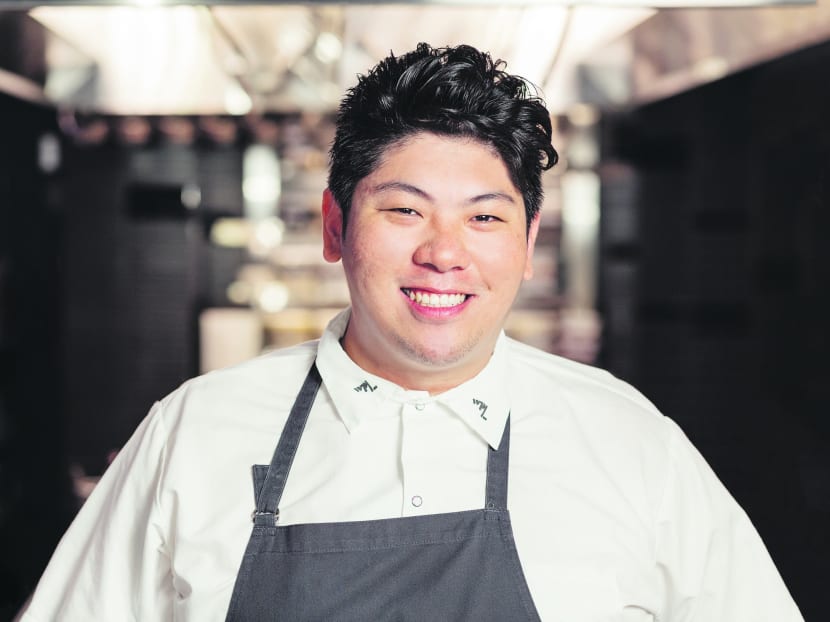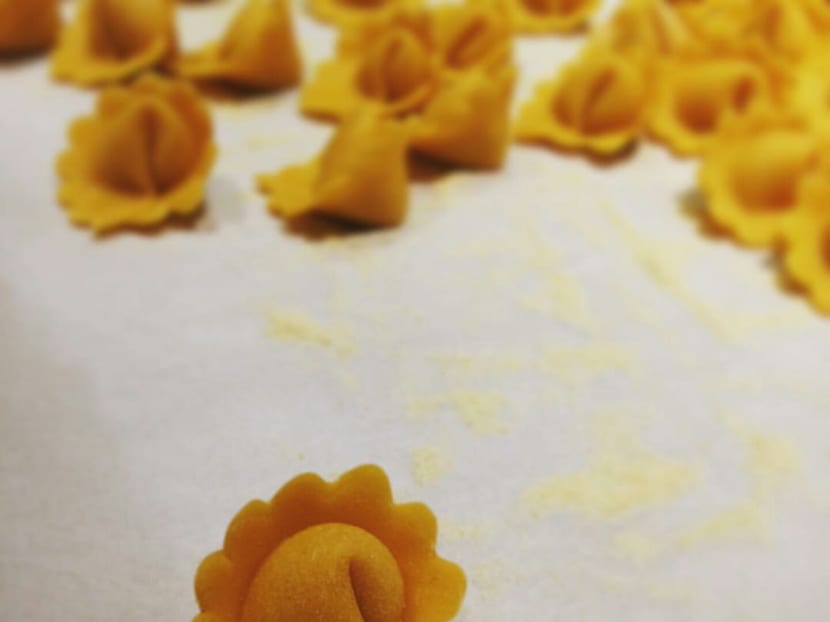Singaporean chef goes from Shatec to chef de cuisine of New York’s Momofuku Ko
Every foodie worth his or her salt would have heard of New York’s Momofuku Ko, the famed fine-dining crown jewel of the Momofuku empire by straight-talking founder-chef and restaurant mogul David Chang. And its head chef Max Ng is S'prean and is fast becoming a giant in the Big Apple’s competitive restaurant scene.


NEW YORK CITY – Every foodie worth his or her salt would have heard of New York’s Momofuku Ko, the famed fine-dining crown jewel of the Momofuku empire by straight-talking founder-chef and restaurant mogul David Chang. Wait till you hear about Max Ng. Standing at 1.85m tall, the newly promoted chef de cuisine is fast becoming a giant in the Big Apple’s competitive restaurant scene. And he is Singaporean.
This is not a position Ng would even have dreamt of as a schoolboy baking apple pies and burning his fried rice at Temasek Secondary School, where he spent half the year taking home-economics lessons and first developed his love for cooking.
Speaking to TODAY, the 31-year-old said he is grateful for the opportunities he has been given over the years, as a student at the Singapore Hotel And Tourism Education Centre (Shatec) and the Culinary Institute of America as well as an intern at Pan Pacific Hotel, to get this far.
Ng first got an internship at Momofuku’s Ssam Bar — he showed up at the bar on a Saturday afternoon with his knives and chef’s coat to ask for a trial. “Even if I was rejected, at least I’d know immediately,” he recalled, adding he managed to pass the trial and started his internship the following week. From there, he worked his way to a commis chef position at Ko in 2013, where he was in charge of receiving stocks, cleaning the produce and making meals for the restaurant crew.
Over the years, he has also absorbed Chang’s philosophy. “I think one key takeaway after being with David for so long is that we should never forget our heritage, we should always pay homage and respect to where we have been, and we should never forget how we got to this point,” Ng said. “Just by tracing the steps through the history of food, you’d know how to proceed.”
“At Ko, we really encourage and celebrate diversity, because that’s very important to our creative process. As Singaporeans, we’ve been exposed to so many cultures, not only south-east Asian, but French, Japanese and even Australian cuisine. That really gives me the advantage of knowing more, and helps me to understand more when it comes to other cuisines,” he added.
And if Ng could introduce something from here to Ko’s menu, it would — unquestionably — be kaya.
“It’s my favourite thing to eat, especially with a frozen piece of butter, and I think it has an interesting texture. I think people would really like it. It’s not something that a lot of people have had before, and I think it’s one of the more iconic Singaporean things,” said Ng, who says he eats his favourite Bak Chor Mee at Block 85 at Fengshan every time he comes home to Singapore.
Perhaps one day, Ng will return and build his own empire in Singapore with what he has learned working at Ko.
“As much as I like being with Momofuku, Singapore is still home. And at some point, maybe it will happen. Maybe an opportunity will present itself.”
In the meantime, Ng is committed to Momofuku Ko and maintaining the standards of the acclaimed restaurant. “Consistency of the dishes encompasses a lot of aspects such as having a good relationship with your supplier and knowing their habits, and knowing things like, if it’s a holiday, you won’t get fish,” said Ng, who works 14- to 15-hour shifts five days a week. “All kitchens think of space as a very important commodity, especially in NYC, and you just want to get the most and least amount of food that your kitchen can handle without overloading the fridge and still have a fresh product. Cooking is also very important, the younger cooks especially are still learning, from the final presentation on the plate to the mechanics of eating. The service is important, and the timing is very important. It’s the consistency, the entire chain. That is the hardest and most important part (of my job).”





